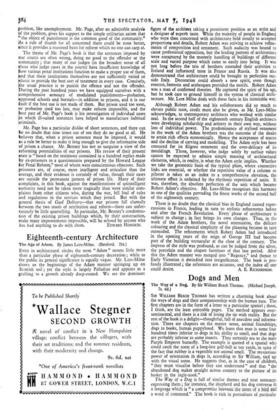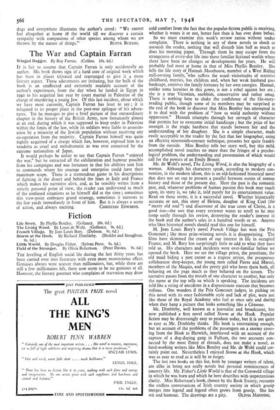Dogs and Men
Dog. By Sir William Beach Thomas.
The Way of a (Michael Joseph.
7s. 6d.)
SIR WILLIAM BEACH THOMAS has written a charming book about the ways of dogs and their companionship with the human race. The first chapters are in the form of a letter to a particular spaniel ; these, I think, are the least enjoyable pages. The method appears over- sentimental, and there is a risk of losing the tie with reality. But the rest of the book is a delight—thoughtful, full of anecdote and informa- tion. There are chapters on the master sense, animal friendships, dogs in books, human puppyhood. We learn that man is some four hundred times inferior to dogs in his ability to smell, and that dogs are probably inferior to some insects. They certainly are to the male Purple Emperor butterfly. The example is quoted of a spaniel who could catch the scent of a long-lost golf-ball at ten yards, in spite of the fact that rubber is a vegetable not animal smell. The mysterious power of orientation in dogs is, according to Sir William, tied up with the visual sense. He suggests that, as in the case of children, " they must visualise before they can understand " and that " the abandoned dog makes straight across country to the picture of its basket in the ingle-nook."
The Way of a Dog is full of similar themes and neat sentences expressing them ; for instance, the shepherd and his dog converse in a language which is " a compromise between the notes of a bird and a word of command." The book is rich in portraiture of particular
dogs and everywhere illustrates the author's creed: " We cannot feel altogether at home hi the world till we discover a certain sympathy with companions of other species among whom we are thrown by the nature of things."' RUFUS Burrox.



































 Previous page
Previous page